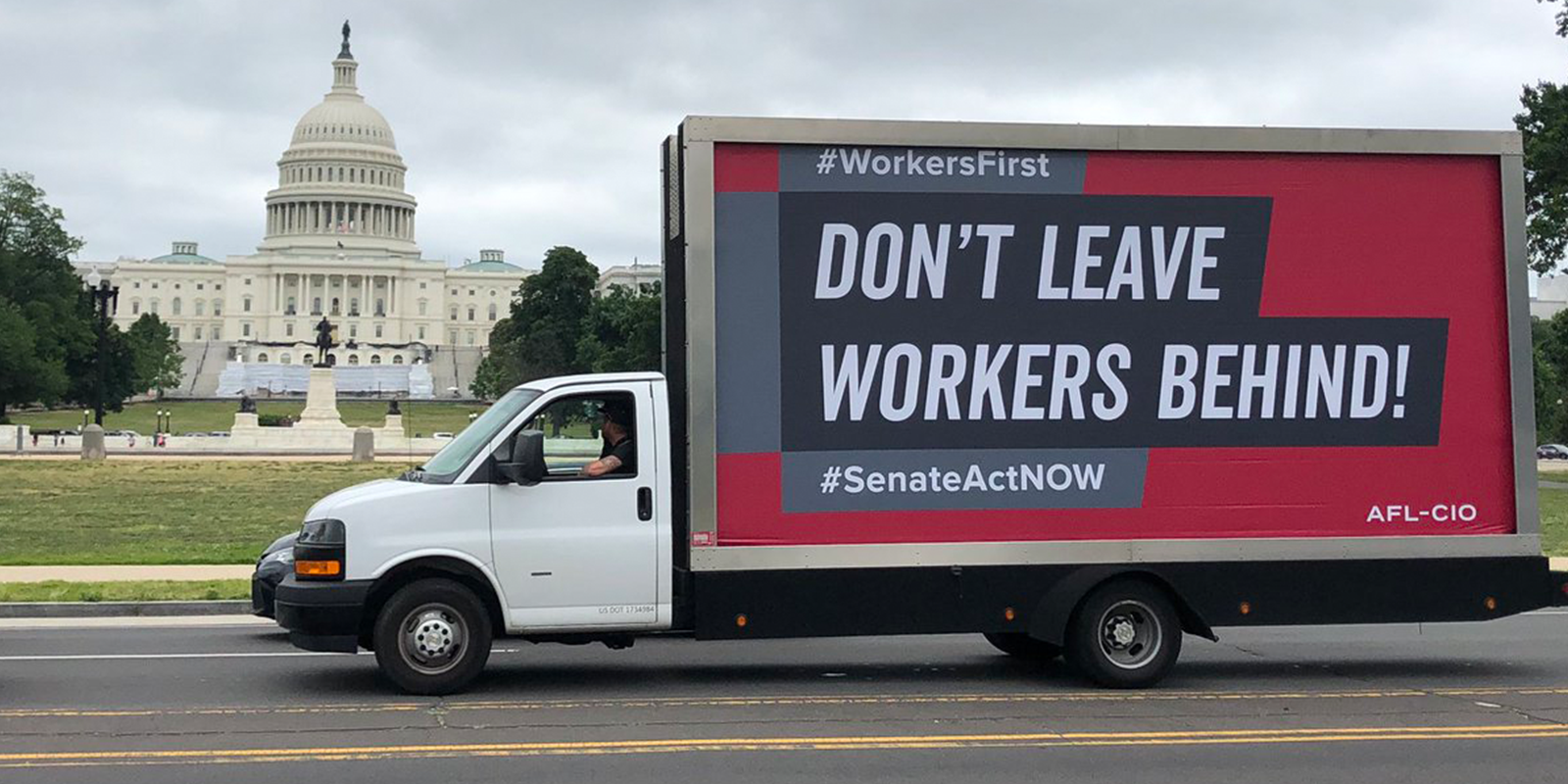More than a thousand union members on Wednesday traveled to Washington, D.C., to demand bold action from our elected leaders on three fronts: the coronavirus pandemic, the resulting economic devastation, and the long-standing structural racism that has led to massive protests across the country.
The event, called “Workers First Caravan for Racial and Economic Justice,” saw hundreds of vehicles circling the U.S. Capitol to send the message to Congress and President Donald Trump that working people demand action now.
Organized by an alliance of unions including AFSCME, it was the headline event of a massive mobilization with hundreds of actions in all 50 states, the District of Columbia and Puerto Rico.
“Every day, I spend about 12 hours speaking with hardworking folks who share their heart-wrenching stories,” said Jason Suggs, an unemployment insurance professional at the Maryland Division of Unemployment Insurance and president of Local 3641 (AFSCME Maryland Council 3). “They’ve done everything they were supposed to: they’ve gone out, gotten a job, they’re providing for their families, and in some cases, they are now waiting six weeks or longer to receive their unemployment insurance benefits.”
Suggs said many people who have lost their jobs since the economy shut down are finding out they are ineligible for benefits or have to provide a mountain of paperwork to support their claims. It’s stories like these, he said, that motivate him to speak out.
“Our neighbors are literally crying out for help, and it is urgent that our leaders work to keep workers safe, expand health care and invest in our communities,” he said.
Suggs was joined by Randi Weingarten, president of the American Federation of Teachers (AFT); Patricia Williams, a cook at the Department of State cafeteria and member of UNITE HERE Local 23; and Chrystal Puryear, a member of Washington Teachers’ Union Local 6.
They sent the message that the three crises confronting our nation are connected, and that to solve these problems we cannot treat them separately. Black Americans are feeling the most pain right now because racism continues to play an insidious role in their daily lives. They said the nation must address issues of racial and economic inequality, as well as pass the HEROES Act and enact reforms in policing.
“We must have a serious conversation about how to level the playing field for African American communities,” Suggs said. “But we can begin to close some gaps by fully funding the public services that communities need to get back on their feet – from education and child care to health care and unemployment insurance.”
Without adequate help from Congress to fund essential public services in communities across the nation – which means at least $1 trillion in aid to states, cities and towns – the recession is bound to become a depression.
“We will see massive layoffs and cuts to vital public services like sanitation, health care, water treatment and social services,” Suggs warned. “These cuts will disproportionately affect African American workers just like they did during the Great Recession, and it will in turn bring down local economies as essential workers go from supporting local businesses to needing assistance to keep a roof over their heads.”
